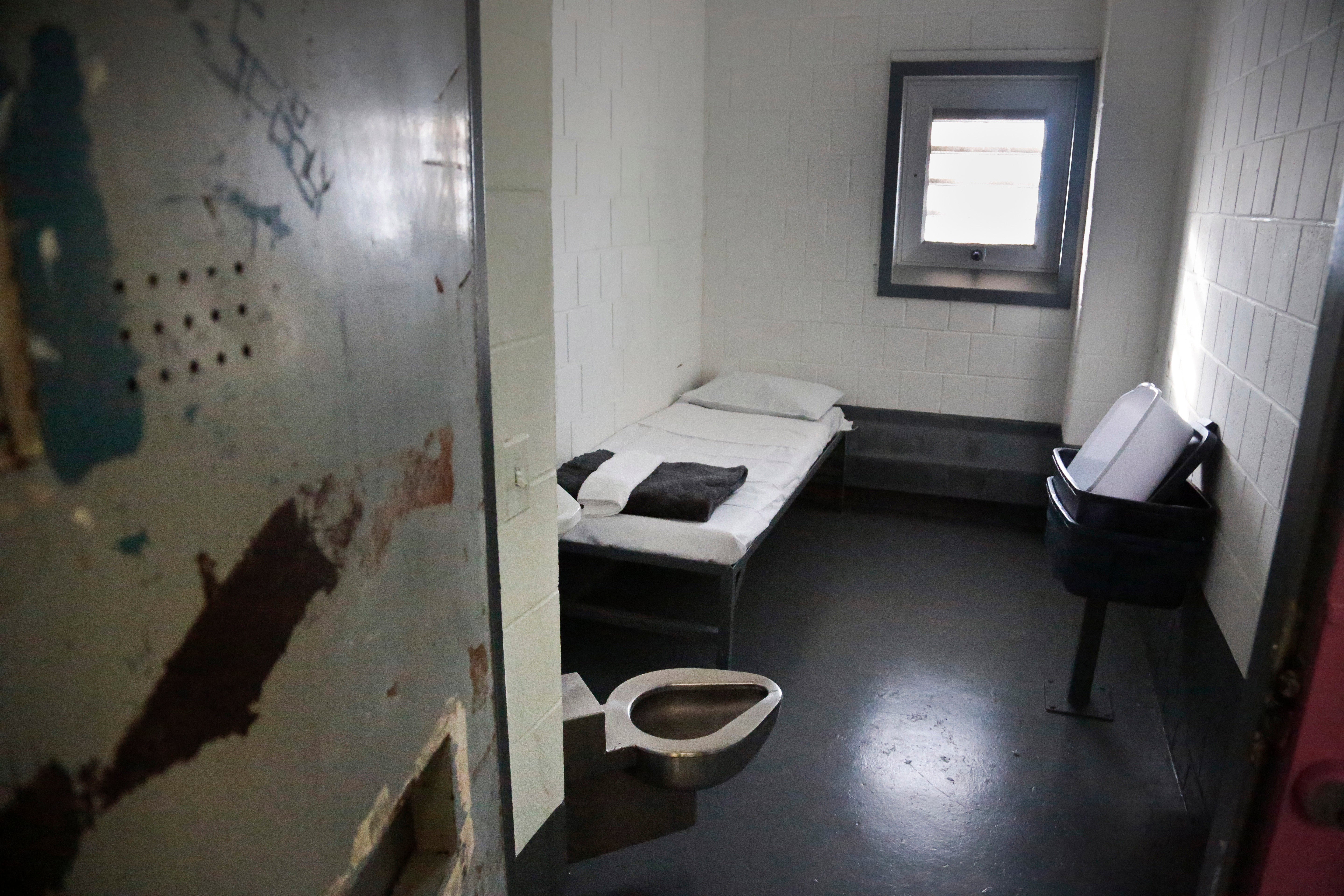NYC council defies Eric Adams to pass ban on solitary confinement in jails
New York mayor announcing his disapproval of city council decision

The New York City Council has voted to ban solitary confinement across its jails, igniting a potential rift between the legislative body and Mayor Eric Adams’ office.
The council voted to end the practice 39 to 7 on Wednesday during a hearing for the committee of criminal justice. The legislation was introduced by City Public Advocate Jumanee Williams. Mr Adams is expected to veto the measure, according to multiple reports, though the mayor has made no formal announcement yet.
Following the vote, Mr Adams released a statement announcing his disapproval of the decision while declaring that he is not in favour of solitary confinement.
“Under this bill, the Department of Correction will no longer be able to protect people in custody, or the predominantly Black and Brown union workers charged with their safety, from violent individuals,” Mr Adams said.
“And we have been clear: Our administration does not support solitary confinement in our jails, and New York City has not used the practice for years.”
A report on solitary confinement released this year by Columbia University’s Center for Justice found that the practice is primarily inflicted on Black and brown incarcerated people, which make up over 90 per cent of the jail system’s population.
According to the bill, corrections officers will no longer be able to place incarcerated people in a cell other than at night for eight hours during a 24-hour period or for two hours during the day in a 24-hour period.
Furthermore, incarcerated people must spend 14 hours outside of their jail cells. The law does allow exceptions for de-escalation confinement and emergency lock-ins. The new regulations only apply to the city’s jail system.
During the hearing, city council members also voted 35 to 9 to enact Introduction 586-A, which will require the NYPD to publicly report on all police-civilian investigative stops. Mr Adams disapproved of that bill as well.
He claimed the legislation will “slow down police response times and divert our officers from responding to emergency incidents.” It’s unclear if the mayor will veto either or the laws. The decision might prove moot, considering city council only needs 34 votes to override a veto.
The new laws come as a federal prosecutor has urged that the city’s jails be taken over by the federal government through a process known as receivership. The decision would effectively take the power to run Rikers Island away from Mr Adams and hand it to an outside expert known as a receiver. The transition would be temporary if enacted, in effort to improve conditions.
There have been some debates about whether the practice of solitary confinement is akin to torture. In 2020, a United Nations expert raised concerns over the county’s excessive use of the disciplinary measure.
“These dehumanising conditions of detention, sometimes euphemistically referred to as ‘segregation’, ‘secure housing’, the ‘hole’, or ‘lockdown’, are routinely used by US correctional facilities, particularly against inmates designated as ‘high risk’ due to previous gang affiliations, behaviour abnormalities or mental conditions,” said Nils Melzer, UN Special Rapporteur on torture.
Subscribe to Independent Premium to bookmark this article
Want to bookmark your favourite articles and stories to read or reference later? Start your Independent Premium subscription today.

Join our commenting forum
Join thought-provoking conversations, follow other Independent readers and see their replies